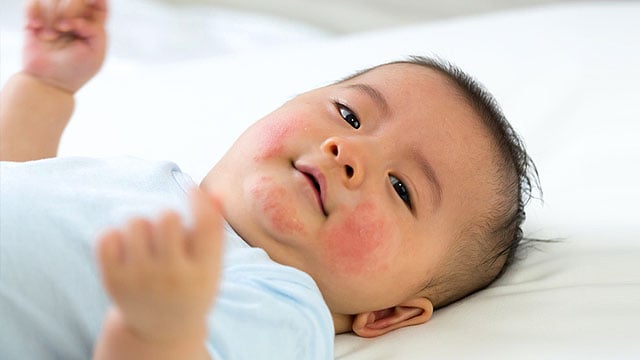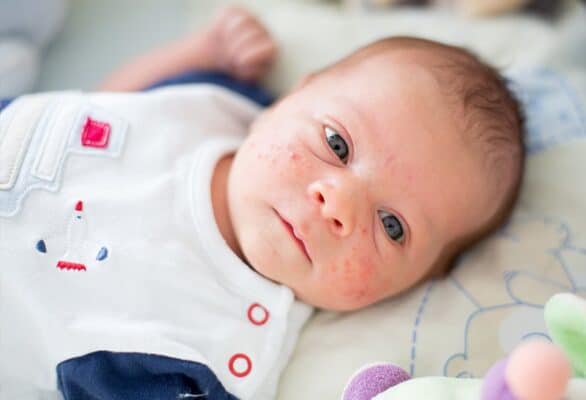When it comes to treating baby acne, there are several different treatment options available. The skin condition is often very similar to adult acne, which explains why many parents turn to over-the-counter medicines such as benzoyl peroxide or salicylic acid. However, these medicines are rarely helpful for newborns as the chemicals used in the preparation of topical treatments can potentially harm the baby’s delicate skin.
Newborn baby acne can be very irritating for both the parents and the baby, so it’s important to treat the condition early on so the child can avoid the embarrassing and painful side effects of adult acne. In most cases, mild to moderate baby acne can be dealt with topical medications such as salicylic acid or benzoyl peroxide. However, if your infant develops red, inflamed blemishes, severe blemishes or if the condition causes your infant to have a rash that doesn’t respond well to treatment, then it’s probably best to see your physician right away. Newborn baby acne is usually caused by an infection, which means that your child’s immune system isn’t strong enough to fight off the infection and prevent it from worsening.

In addition to fighting infections, your doctor should examine your baby’s environment and food intake to determine if there is an underlying cause. For example, a baby who suffers from eczema may need to take antibiotics to combat it. Your doctor can perform a complete physical exam and look for any signs of a bacterial infection or an imbalance in your child’s immune system. Some types of infant acne are caused by allergies to certain foods or stress. You may also want to consider changing your child’s diet if he or she has been diagnosed with a medical condition, such as a digestive disorder, that can lead to acne.
Once you’ve determined the exact cause, it’s time to begin to alter your baby’s diet. to help remedy the problem. Common culprits include soy milk, cheese, soy products, gluten, citrus fruits and nuts, and sugar.
Antibacterial soap is another popular way to treat baby acne. It works by killing bacteria in the skin that is responsible for the condition. Some antibacterial soaps are also found to be beneficial against other skin conditions. However, be careful not to wash your child’s face too much with these types of soaps since this may irritate the skin and worsen your child’s skin condition.

Another treatment option that may help is an antibiotic cream. This is very useful in dealing with mild cases of acne but is not effective in treating cystic acne. If your child has a severe case of acne and is unable to take oral antibiotics, then he or she may also be able to get relief through topical applications of antibacterial soap. It’s best to seek medical attention right away.
Preventive measures include regular bathing, which help keep bacteria from sticking to the skin, as well as washing the hands thoroughly after touching the face. A good moisturizer also helps minimize the amount of moisture in the face and helps prevent scarring. Antioxidants and other substances can also be applied to the skin to help prevent damage. To prevent irritation, you may want to consider applying some natural moisturizing lotion on the face before bedtime.
Treating baby acne is a tricky task. But, if you are truly committed to providing healthy skin for your little one, the sooner you start treating the acne the better. The sooner that acne is treated, the more likely that your child will experience long-term skin health benefits and fewer future outbreaks.
